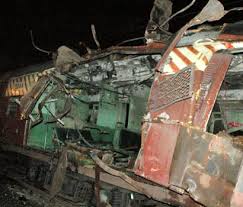2006 Mumbai train blasts case: Supreme Court stays Bombay HC verdict acquitting all 12 accused

The Supreme Court of India has stayed the Bombay High Court’s judgment that cleared all 12 accused in the 2006 Mumbai train blasts. This decision came on July 24, 2025, only three days after the High Court overturned the 2015 convictions. The case now moves into another critical legal phase.
A Dark Day in Mumbai’s History
On July 11, 2006, seven bomb blasts rocked the first-class coaches of Mumbai’s Western Railway during evening rush hour. The explosions killed 189 people and injured over 800 commuters. It was one of the worst terror attacks in India, leaving behind chaos, grief, and a city grappling with fear.
The Maharashtra Anti-Terrorism Squad (ATS) quickly began investigating. They claimed the attack was planned by Lashkar-e-Taiba (LeT) and aided by SIMI operatives. By 2008, 13 men were charged under stringent laws, including MCOCA, UAPA, and the Explosives Act.
Convictions in 2015
In September 2015, a special MCOCA court convicted 12 of the accused.
- Five men received the death penalty for their direct involvement in planting the bombs.
- Seven others were sentenced to life imprisonment for conspiracy and other related charges.
The court relied on confessional statements, witness accounts, and forensic recoveries. Families of the victims welcomed the verdict, seeing it as a step towards justice. However, human rights groups raised questions about custodial torture and flawed investigation methods.
Bombay High Court’s Acquittal
On July 21, 2025, the Bombay High Court acquitted all 12 accused. In a detailed 671-page judgment, the bench of Justices Anil S. Kilor and Shyam C. Chandak ruled that the prosecution failed to prove the case beyond reasonable doubt.
Key observations from the verdict:
- Doubtful Confessions – Several confessional statements looked identical, suggesting they were scripted.
- Unreliable Witnesses – Witnesses, including taxi drivers, came forward after long delays and gave inconsistent versions.
- Forensic Lapses – The chain of custody for RDX and other evidence was poorly documented.
- Lack of Direct Proof – The prosecution presented no strong call records or electronic data linking the accused to the blasts.
The court ordered the release of the 11 surviving convicts (one had died in custody) after 17 years behind bars. Families of the acquitted men celebrated the verdict, while the victims’ families felt deeply disappointed.
Supreme Court Steps In
The Maharashtra government filed an appeal in the Supreme Court, challenging the acquittal. They argued that the High Court overlooked critical evidence, especially the recovery of explosives.
On July 24, 2025, the Supreme Court stayed the High Court’s judgment. However, the top court clarified that the men will not be sent back to jail until the final verdict. Chief Justice B.R. Gavai’s bench also issued notices to all 12 acquitted men to respond to the state’s appeal.
Reactions Across India
The stay order triggered mixed responses.
- Families of the victims welcomed the Supreme Court’s intervention, saying it revived their hope for justice.
- Legal experts observed that the stay prevents the High Court’s ruling from becoming a precedent in other MCOCA cases.
- Human rights advocates expressed concern about the accused losing 17 years of their lives to imprisonment, despite possible wrongful convictions.
Why This Case Matters
The case raises serious questions about India’s anti-terror investigations. The High Court’s judgment pointed to systemic flaws, including coercive interrogation tactics and a lack of modern forensic methods. These issues highlight the urgent need for reforms in handling terrorism trials.
Moreover, the acquittal sparked debates over confession-based evidence under MCOCA and UAPA. Critics argue that such laws must be re-examined to prevent misuse and ensure fair trials.
What Lies Ahead
The Supreme Court will now carefully review all records from the case. This process could take months due to the volume of evidence and testimonies. Three outcomes are possible:
- The Supreme Court may reinstate the 2015 convictions.
- It could uphold the acquittal if it finds the High Court’s reasoning sound.
- A retrial could be ordered, although this is less likely given the time already spent in prison.
Broader Lessons
The 2006 Mumbai blasts case is not just about one trial. It reflects larger challenges in balancing national security with individual rights. While the victims deserve justice, wrongful convictions erode public faith in the justice system.
The case also highlights the emotional toll on both sides: families of victims who demand accountability and the accused who lost nearly two decades of freedom.
Conclusion
The Supreme Court’s stay on the Bombay High Court acquittal means the final chapter of this case is still unfolding. As the nation awaits the apex court’s decision, the 2006 blasts remain a reminder of how vital accurate investigations and fair trials are in ensuring true justice.






